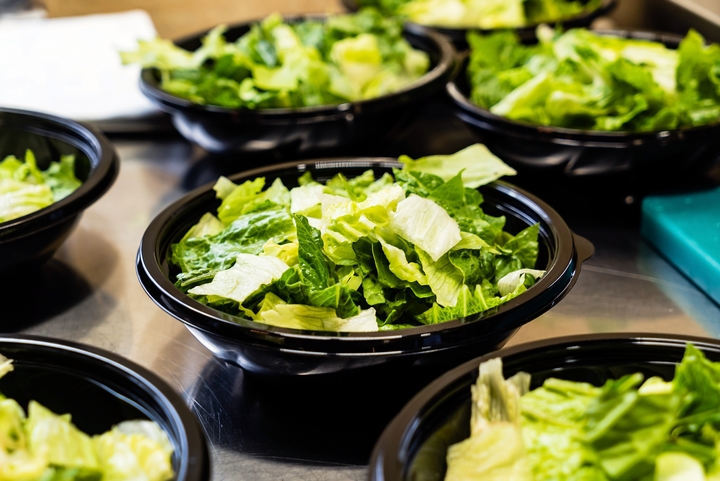What to Eat After Fasting for 7 Days
Congratulations on completing your seven-day fast. It takes a lot of hard work and determination to fast for an extended period. Now that you have finished, you may be wondering what benefits your fasting has provided and how to incorporate foods back into your diet.
Let’s go over everything you need to know about breaking your fast.
What are the benefits of fasting?
Over the past few years, fasting has become extremely popular – and for a good reason! This practice has many health benefits, whether you incorporate intermittent fasting into your day or choose an extended fast.
Fasting can:
- Help speed up weight loss.
- Enhance your metabolism.
- Improve your hunger cues and cravings.
- Boosts your memory, focus, and brainpower.
- Cleanse your system.
- Improves digestion.
- Promotes clear, healthy skin.
Why can’t I resume my usual diet after a fast?
After fasting, your digestive system will be extremely sensitive. Certain foods can irritate the stomach and intestines since you haven’t eaten anything for a week. This may cause nausea, an upset stomach, or diarrhea.
You must stick to foods that are light and easy to digest for the first few days. Work your way back up to the foods and volume of food you used to eat before fasting.
What foods should I avoid after a fast?
After fasting, you must avoid the following foods:
- Dairy products.
- Fast food.
- Candy and sugary foods.
- Soft drinks.
- Alcohol.
- Meat.
- Highly processed foods.
Another excellent idea to replenish your body after a fast is to enlist the help of a meal delivery service like Meels. These services create healthy, nutritious meals perfect for breaking a seven-day fast. Meal delivery services consider your personal nutritional needs when developing your meal plan. Plus, the food they serve is ready to heat and eat.
If you have just completed a seven-day fast, you must replenish your body with the nutrients that it has been missing. Fuel yourself with wholesome, natural foods and gain all the benefits your fast has provided you with.
Lots of water
One of the most important things you can do after breaking a fast is to drink plenty of water. While fasting, your body can become dehydrated. Replenishing your hydration levels is crucial. Sip water frequently, even if you don’t feel thirsty.
Freshly squeezed juice
Freshly squeezed juices can help increase hydration while providing your body with vitamins and minerals. Use a juicer to create delicious blends using both fruits and vegetables. This will ensure that you get plenty of nutrition with every drink.
Fruits
Fruits are filled with the nutrients that your body needs after a fast. They also contain lots of natural sugars, which will give you a boost of energy. Fruits also contain fibre, which helps restore the digestive tract.
Vegetables
Vegetables are an excellent food to eat after breaking a seven-day fast. You can choose to cook your veggies or eat them raw. Immediately following a fast, try to avoid cruciferous vegetables such as broccoli and cauliflower. These foods may be problematic for your body to digest, resulting in unwanted bloating and gas.
Greens
Eating plenty of greens is vital whether you have been fasting or not. Greens are high in B vitamins which will restore your energy levels. They are also high in vitamin C, boosting your immune system. After a fast, try to eat at least one large salad per day to get in your daily requirement of greens.
Soups and broths
Clear soups and broths are easy to digest and will help combat dehydration. These foods can help restore electrolytes and are soothing to the digestive system. If you have difficulty eating solid foods after fasting, stick to soup for a few days.
Fermented foods
Sauerkraut, kimchi, kefir, and kombucha are just a few fermented foods you can eat after a fast. These foods contain good bacteria, which are highly beneficial to your digestive tract. They can help improve digestion and allow you to break down your food more efficiently, reducing gastrointestinal issues.
Smoothies
Smoothies are nutritious and delicious. Combine frozen fruits and veggies to create a smoothie high in vitamins and minerals. Avoid dairy products and protein powders until your digestion has returned to normal.
Bone broth
Bone broth is a clear broth created by boiling animal bones. It is highly nutritious and contains ample vitamins and minerals. It helps hydrate the body after a fast and has also been shown to improve both digestion and gut health.
Healthy fats
Eating healthy fats in moderation after a fast is very beneficial. They provide wholesome nutrition for your body and can help you feel full and satiated. Enjoy foods that contain healthy fats, such as olives, avocados, and nuts.

